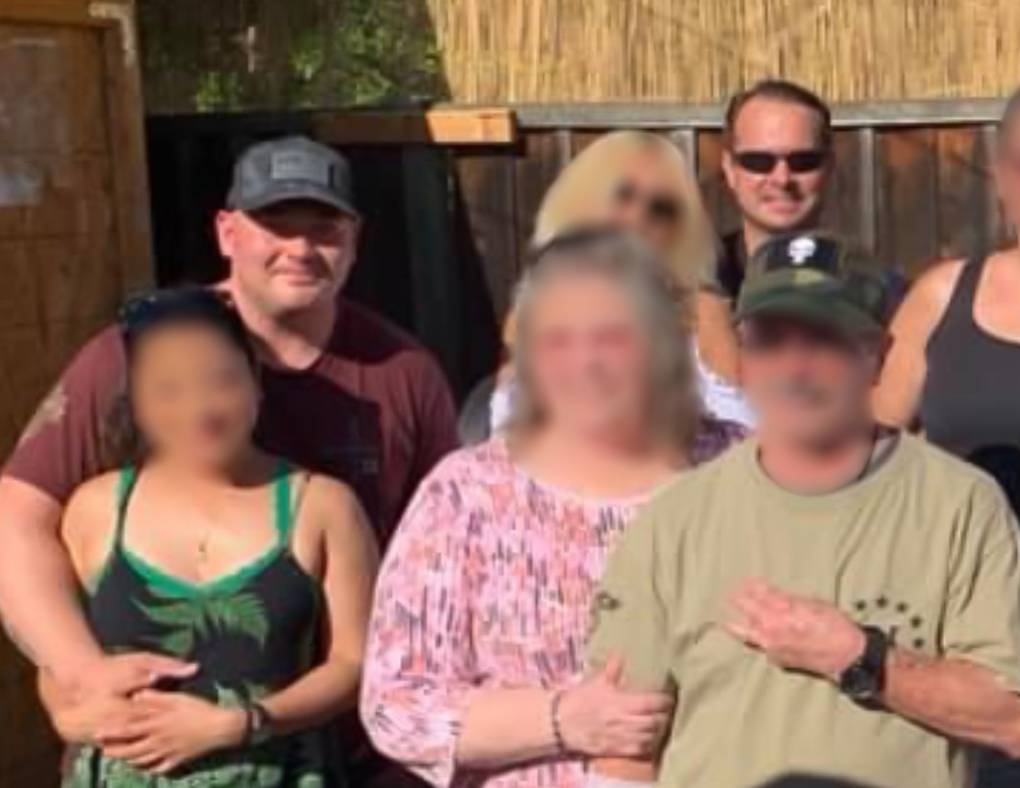Breyer also ordered a psychiatric evaluation to assess the level of threat Rogers poses to the public. The report is confidential, but Rogers’ attorney Colin Cooper said the evaluator concluded his client was at low risk for reoffending.
In October, Rogers submitted a handwritten letter to Breyer. “I was wrong to think about causing damage to any building or anyone. And, I think about that every day,” he wrote.
Rogers also said he struggled with substance abuse and was duped by the former president’s lies.
“At the time, I believed the election was stolen,” he wrote. “At the time, I believed things said by the Trump administration. At the time, I was in a dark place in my life and I was abusing alcohol and acting out, in part, because of it.”
In court, Rogers blamed alcohol abuse for warping his judgment, and said he would regret possessing machine guns and pipe bombs for the rest of his life.
“I am sorry for all these things I said, but I can assure you I never seriously meant them in any way,” he told the court. “They were just dumb, stupid, drunken thoughts, and I regret saying them all.”
Rogers also apologized to family members in the courtroom, including his wife and two sons. “I let you down,” he said as his voice cracked. “I hope you can forgive me.”
Breyer told Rogers he had to believe that alcoholism was the reason someone with no previous criminal record would threaten to harm political opponents. Breyer added that he understood that Rogers had serious disagreements with the way the government is operated.
“And you’re not wrong to have those views,” he said. “You are entitled to have those views. You are entitled to it, because you are an American living in this society.
“What you’re not entitled to is to violate the law and to threaten the existence of the government and its institutions.”
Rusty Hicks, chair of the California Democratic Party, read a victim impact statement. He said employees and volunteers suffered emotional and mental harm.
“Dedicated folks who work at the party headquarters expressed concern about their own safety, fearing that individuals associated with the defendants or those who shared the defendants’ political views and happened to see the news would follow through with the defendants’ plans,” Hicks said.
Copeland apologized to the party in his statement, and said he regretted causing fear. He stopped reading several times to fight back tears. “I’m truly ashamed of myself,” he said. “I ask for your forgiveness.”
As part of the plea deal, federal prosecutors agreed that Rogers may serve his federal sentence concurrently with a potential state sentence. The Napa County district attorney has charged Rogers with 28 felony counts, including conspiracy and possession of illegal weapons. If the case goes to trial, Rogers faces a statutory maximum of 45 years in prison.
That state case is expected to move forward now that Rogers has been sentenced in federal court. A hearing at the Napa County Superior Court is scheduled for Friday.
KQED’s Alex Hall contributed to this report.


